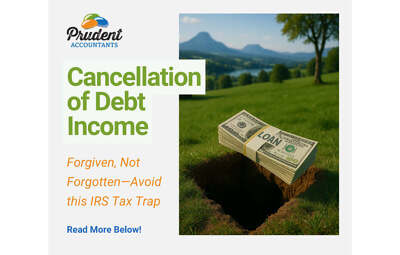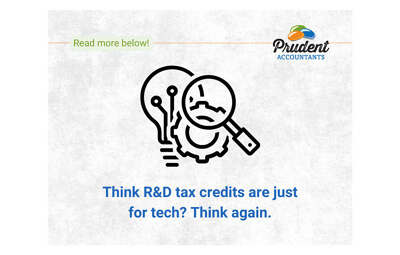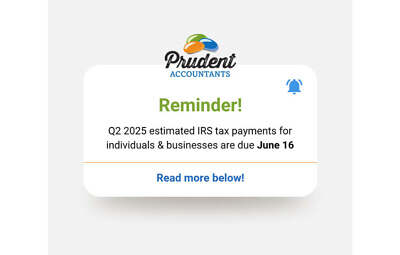Minneapolis Special Local Taxes – Industry Guide
The Minnesota Department of Revenue administers these Minneapolis special local taxes.
Minneapolis Entertainment Tax (applies city wide)
The 3% entertainment tax applies to:
- Admission fees
- The use of amusement devices and games
- Food, drinks, and merchandise sold in public places during live performances
- Short-term lodging within the city limits
This tax is in addition to the:
- 6.875% state general rate sales tax
- 0.15% Hennepin County Sales Tax
- 0.5% Hennepin County Transit Sales Tax
- 0.5% Minneapolis Sales Tax
- 0.25% Metro Area Sales Tax for Housing
- 0.75% Metro Area Transportation Sales Tax
Note: The Minneapolis lodging, restaurant, and liquor taxes may also apply.
Admission Fees
Admission fees to athletic events or other places where entertainment is provided in Minneapolis are subject to the 3% Entertainment Tax. Examples include:
- Circuses
- Concert halls
- Fairs
- Theaters
The entertainment tax applies:
- Regardless where tickets are purchased or reservations are made.
- To admission and delivery fees but not convenience fees separate charges from the admission
Note: The entertainment tax does not apply to reservations made or tickets purchased in Minneapolis for events outside the city limits.
Example
- An online ticket seller adds separate charges for delivery and a convenience fee to the admission ticket for a play in Minneapolis. The Minneapolis Entertainment Tax applies to the admission and delivery charges, but not the convenience fee. The entire charge, including the convenience fee, is subject to the rest of the applicable taxes.
Cover or Minimum Charges
Cover and minimum charges are subject to the entertainment tax. A cover or minimum charge (collected at the door or later) gives the customer access to dancing, entertainment, or the option to buy meals, drinks, or other items.
Use of Amusement Devices and Games
Entertainment tax applies to the charge to use amusement devices or games in Minneapolis. They may be located indoors or outdoors
Examples include:
- Athletic event admissions (except regular season school games for grades 1 – 12)
- Bowling fees
- Carnival or fair admissions
- Carnival rides (merry go-rounds, bumper cars, etc.)
- Dance ballrooms or pavilion admissions
- Jukeboxes
- Rentals of motorbikes, bicycles, skates, trampolines, canoes, and other boats at amusement parks and similar places
- Movie theater, stage show, and play admissions
- Musical concert admissions (unless exempt as an artistic performance sponsored by a nonprofit arts organization)
- Pool or billiard table fees
- Video or pinball machines, shuffleboard, or dart board fees
Items Not Subject to the Entertainment Tax
Sales and services are not subject to the entertainment tax:
- Charges to ride aircrafts, buses, trains, boats, limousines, or taxies
- Charges for sightseeing rides and tours
- Coat, hat, and luggage checking services
- Fees for use of athletic facilities, for example health clubs, swimming pools, golf facilities, skate or ski facilities
- Membership dues to country clubs, golf clubs, curling clubs, even if the membership entitles the member to use the club’s athletic facilities
Lodging
Entertainment tax applies to all lodging accommodations and related services within Minneapolis. Minneapolis Entertainment Tax applies to all short-term lodging accommodations. The Minneapolis Lodging Tax only applies to lodging establishments with more than 50 rooms.
The entertainment tax does not apply to lodging when:
- The room rental is more than 30 days, and
- There is a written rental agreement requiring the customer or owner to give notice before ending the rental
Taxable related services subject to the entertainment tax include:
- Pay per view in-room movies and video games
- Purchases from room minibars
- Room service
- Other items related to using the room for lodging
Note: These items are also subject to the other applicable sales taxes imposed with Minneapolis. See the Minneapolis Tax Combinations on page 9.
Sales During Live Performances
The entertainment tax applies to the following sales during live performances:
- Catering services
- Food and drinks
- Merchandise sold in public places, including intermissions
Food, drinks, and merchandise include:
- Catering services
- Beer and other alcoholic beverages
- Other taxable items
Public Places
Public places can be operated for profit or not and include:
- Bars
- Coffeehouses
- Halls
- Hotels
- Restaurants
The entertainment tax does not apply at private clubs or other places where membership is required for admission and service.
Live Entertainment
Live entertainment includes but is not limited to:
- Comedians
- Magicians
- Music (with or without dancing)
Live entertainment does not include:
- Disc jockeys playing recorded music
- Jukeboxes
- Karaoke
- Sporting events
Admissions or cover charges, that entitle the customer to entertainment, dancing, or the option to buy meals, drinks, or other items, is subject to the entertainment tax
All meals, drinks, and other items sold during the time there is an admission or cover charge are subject to the entertainment tax if live entertainment is provided, even during intermission.
If the facility provides live entertainment and does not charge an admission or cover charge, the entertainment tax is imposed on food, refreshments, services, and merchandise ordered during the live entertainment, including intermissions.
The entertainment tax applies to these items only when they are sold at public places during live entertainment.
The state and local sales taxes apply to these items at all times.
Entertainment and Refreshments in Separate Rooms
Food, drinks, or merchandise sold in a different room from the live entertainment, are not subject to the entertainment tax if the two rooms are separate business operations.
Examples
The examples below are subject to state general rate, Hennepin County Sales Tax, Hennepin County Transit Sales Tax, Minneapolis Sales Tax, Metro Area Sales Tax for Housing, and Metro Area Transportation Sales Tax. The entertainment tax applies as indicated.
Note: The downtown liquor and restaurant taxes explained previously apply if the establishment is located in the downtown taxing area.
- A VFW post operates a room where food and beverages are sold and live entertainment is provided. If the general public is admitted, food and beverages sold to customers during the live entertainment are subject to entertainment tax. If the general public is not admitted, the sales are not subject to entertainment tax.
- A bar sells drinks and provides spaces for dancing to a jukebox. The drinks are not subject to entertainment tax. If the bar requires a cover or minimum charge, entertainment tax applies to that charge, but not to the drinks.
- A bar hires musicians for live performances three nights a week from 7 to 11 p.m. All food and drinks sold from 7 to 11 p.m. during the nights of live performance are subject to entertainment tax. Sales before 7 p.m. and after 11 p.m. are not subject to entertainment tax. All admissions charges, including those for nights when there is no live entertainment, are subject to entertainment tax.
- A hotel maintains three separate refreshment rooms:
- In the Hotel Café, customers are served food and beverages. Entertainment here is ordinarily jukebox music, but on some occasions, customers are treated to live music during the evening meal. Entertainment tax applies to meals and drinks served during the live performances. Sales at all other times are not subject to entertainment tax.
- In the Hotel Bar, customers are served alcoholic beverages. Entertainment is jukebox music. The bar is operated as a separate entity from the Hotel Café, although customers may pass freely 5 Minnesota Revenue, Minneapolis Special Local Taxes from one room to the other. Entertainment tax does not apply to drinks sold in the bar, even when live music is played for customers in the Hotel Café
- In the Hotel Night Club, customers are served alcoholic beverages and are entertained by a comedian. Customers pay a cover charge to enter the nightclub. All sales in the nightclub, including the cover charges, are subject to the entertainment tax.
Minneapolis Lodging Taxes (apply citywide)
The Minneapolis Lodging Tax is 3% and only applies to charges for lodging accommodations at hotels and motels with more than 50 rooms available for lodging within Minneapolis city limits.
Minneapolis total city tax rate combined cannot exceed 6.5% on lodging (0.5% Minneapolis Sales Tax, 3% Minneapolis Entertainment Tax, and 3% Minneapolis Lodging Tax). This does not include the Hennepin County taxes, Metro Area Sales or Use Tax for Housing, Metro Area Transportation taxes, or the general state sales tax rate.
Lodging tax is in addition to:
- 6.875% state general rate sales tax
- 0.15% Hennepin County Sales Tax
- 0.5% Hennepin County Transit Sales Tax
- 0.5% Minneapolis Sales Tax
- 3% Minneapolis Entertainment Tax
- 0.25% Metro Area Sales Tax for Housing
- 0.75% Metro Area Transportation Sales Tax
Separate charges for taxable lodging related services associated with the room rental (pay per view movies, video games, room service, etc.) are not subject to the lodging tax.
Minneapolis Liquor and Restaurant Taxes
Minneapolis Liquor and Restaurant Taxes apply to lodging facility sales and related charges of food or beverages served or provided in a meeting or banquet room.
Examples include:
- Delivery or similar charges
- Mandatory tips or gratuities
- Service charges
Minneapolis Liquor and Restaurant Taxes do not apply to lodging facility sales of food and beverages provided within a guest room.
Lodging taxes do not apply to any of these sales because the services are not related to lodging.
Long-Term Lodging
Lodging rentals are not subject to the state, local, or Minneapolis lodging taxes, when:
- The room rental is more than 30 days
- There is a written rental agreement requiring the customer or owner to give notice before ending the rental
Rooms for Non-Lodging Purposes
Renting a room for a use other than lodging are not taxable. For example, leasing a hotel room for a business meeting.
Examples
- A guest registers at a hotel and stays for five weeks. Although the guest stayed more than 30 days, state, local, and lodging sales taxes apply because there was no written rental agreement.
- A hotel rents suites under monthly written rental agreements that require a 30-day notice to terminate. State, local, and lodging sales taxes do not apply.
- An apartment is rented on a weekly basis. State, local, and lodging sales taxes apply because the rental period is less than 30 days.
- A company rents a room in a hotel on a monthly basis for occasional use by its employees. The written agreement requires a 10-day notice to terminate. State, local, and lodging sales taxes do not apply.
Downtown Minneapolis Liquor and Restaurant Taxes (apply to downtown
area)
The Downtown Minneapolis Liquor and Restaurant taxes apply in the downtown taxing area and are in addition to:
- 6.875% state general rate sales tax
- 0.15% Hennepin County Sales Tax
- 0.5% Hennepin County Transit Sales Tax
- 0.5% Minneapolis Sales Tax
- 3% Minneapolis Entertainment Tax
- 0.25% Metro Area Sales Tax for Housing
- 0.75% Metro Area Transportation Sales Tax
Lodging Taxes
Any fees or charges subject to the local lodging tax are not subject to the Downtown Minneapolis Liquor or Restaurant tax. Local lodging taxes are capped at a maximum city tax rate of 6.5%.
Downtown Minneapolis Liquor and Restaurant taxes may apply to food and beverage sales made by lodging facilities. See Minneapolis Downtown Taxing Area on page 8.
Downtown Liquor Tax
The 3% liquor tax applies to sales of alcoholic beverages sold at on-sale liquor establishments in the downtown Minneapolis taxing area. Examples include:
- Bars
- Clubs
- Hotels
- Motels
- Restaurants
The downtown liquor tax does not apply to off-sale sales of alcoholic beverages.
If the establishment has a 3.2% malt liquor license, or a set-up license, the downtown liquor tax does not apply.
Note: These items are subject to the other sales taxes imposed in Minneapolis. See the Minneapolis Tax Combinations on page 9.
Downtown Restaurant Tax
A 3% restaurant tax applies to food and beverages sold by restaurants, caterers, or places of refreshment in the downtown Minneapolis taxing area.
Examples include:
- Bakeries
- Bars
- Candy stores
- Clubs
- Coffee shops
- Delicatessens
- Deli counters
- Diners
- Drive-ins
- Hotels
- Lodging houses
- Lunch counters
- Mobile units
- Motels
- Restaurants
- Sidewalk carts
- Snack bars
- Theater snack bars
This tax does not apply to:
- Beverages subject to the downtown liquor tax
- Drugstores (except the lunch counter)
- Food and snacks sold by gas stations, cigar stands, grocery stores (except the deli section)
- Taxable food sold from vending machines
The Downtown restaurant tax applies to the same items that are subject to state, county, and city sales tax.
Example
- A coffee shop in downtown Minneapolis sells a cup of coffee and a bag of coffee beans. State, local, and the Downtown Restaurant taxes apply to the coffee, but not to the coffee beans. If live music is played at the coffee shop, the entertainment tax also applies.
Note: These items are also subject to the other applicable sales taxes imposed within Minneapolis. See the Minneapolis Tax Combinations on page 9.
Minneapolis Downtown Taxing Area Exemption
The area occupied by the Minneapolis Woman’s Club, located at 410 Oak Grove Street, is excluded from the Minneapolis downtown taxing area and not subject to the Minneapolis downtown restaurant or liquor taxes.
Target Center, Target Field, Minneapolis Convention Center, and US Bank Stadium
If you make sales at the Minneapolis Convention Center, Target Center, Target Field, or US Bank Stadium the rules described in this fact sheet apply.
For more detailed and specific information on Local Taxes, you can visit at Minneapolis Special Local Taxes – Industry Guide








